I'm trying to create my own implementation for an overlay dialog that opens up when the user clicks a button. The code you see below works perfectly fine but is not that pretty. I'm searching for an implementation where I don't have to create a Thread for each dialog I create. Is there any way to acchieve this?
I've been browsing through various Java source files like JOptionPane and JDialog to figure out what they do in order to block the thread until the user closes the dialog, but I didn't manage to understand it. Additionally I tried various code snippets including the EventQueue like for example EventQueue.invokeLater or EventQueue.invokeAndWait.
// MainViewController.java
@FXML
private void handleServerButton(ActionEvent evt){
Thread t = new Thread(() -> {
if (serverD.showDialog(overlay) == Dialog.OK_OPTION){
System.out.println("OK");
} else {
System.out.println("ABORT");
}
});
t.start();
}
// Dialog.java
public int showDialog(Pane parent) {
latch = new CountDownLatch(1);
this.result.set(NONE);
approveButton.setDefaultButton(true);
abortButton.setCancelButton(true);
container.setVisible(true);
parent.setVisible(true);
try {
latch.await();
} catch (InterruptedException ex){ }
approveButton.setDefaultButton(false);
abortButton.setCancelButton(false);
container.setVisible(false);
parent.setVisible(false);
return result.get();
}
@Override
public void changed(ObservableValue<? extends Integer> observable, Integer oldValue, Integer newValue) {
if (newValue != NONE)
latch.countDown();
}
This is what it looks like (please note: the overlay dialog is not a window itself but rather a pane within the main window):
Final Result
